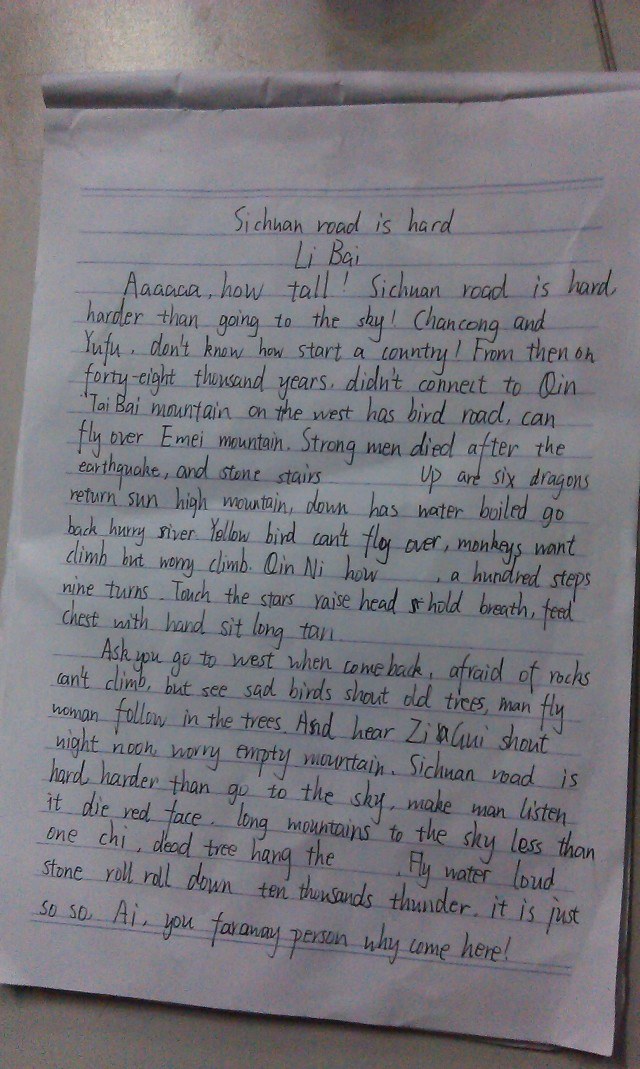Laowai: the old furriner
Lǎowài 老外 (lit., "old foreign") is a ubiquitous term for a certain type of person from abroad in China, and dictionaries almost invariably gloss it as "foreigner". Yet the subtleties and nuances of the term seem almost endless, and they can sometimes lead to misunderstandings and hurt feelings. To try to get a handle on this colloquial expression, I asked a number of laowai who have had long experience in China what they thought of this appellation that they had doubtless been called hundreds of times and some Chinese friends who most likely had had occasion to employ that designation themselves.
Read the rest of this entry »

